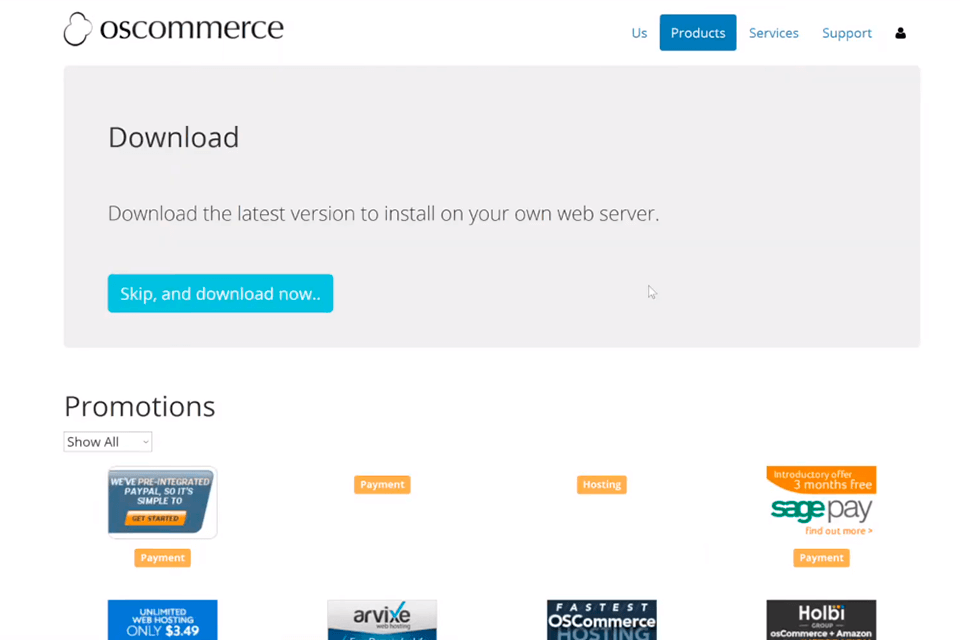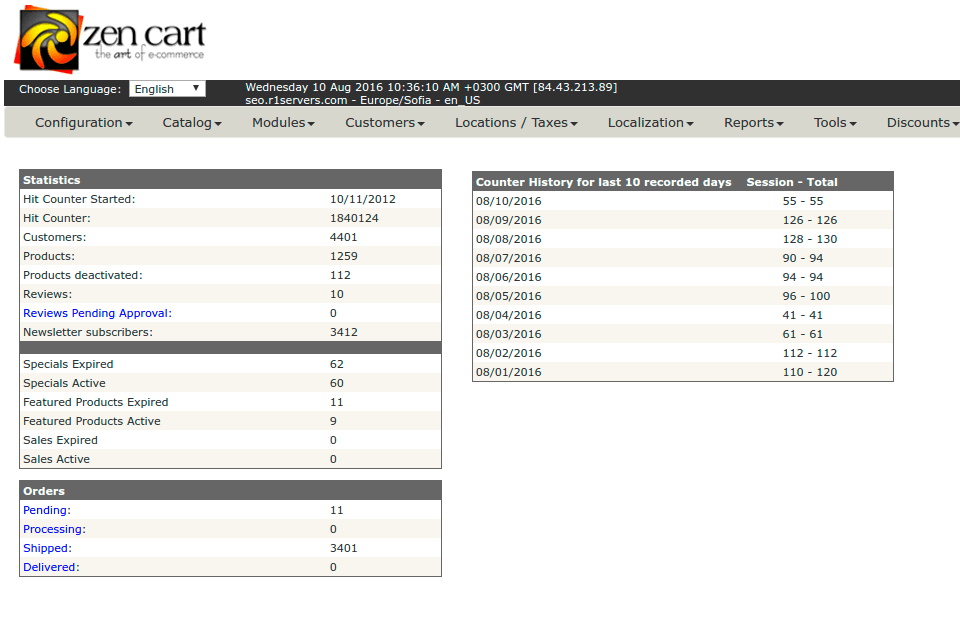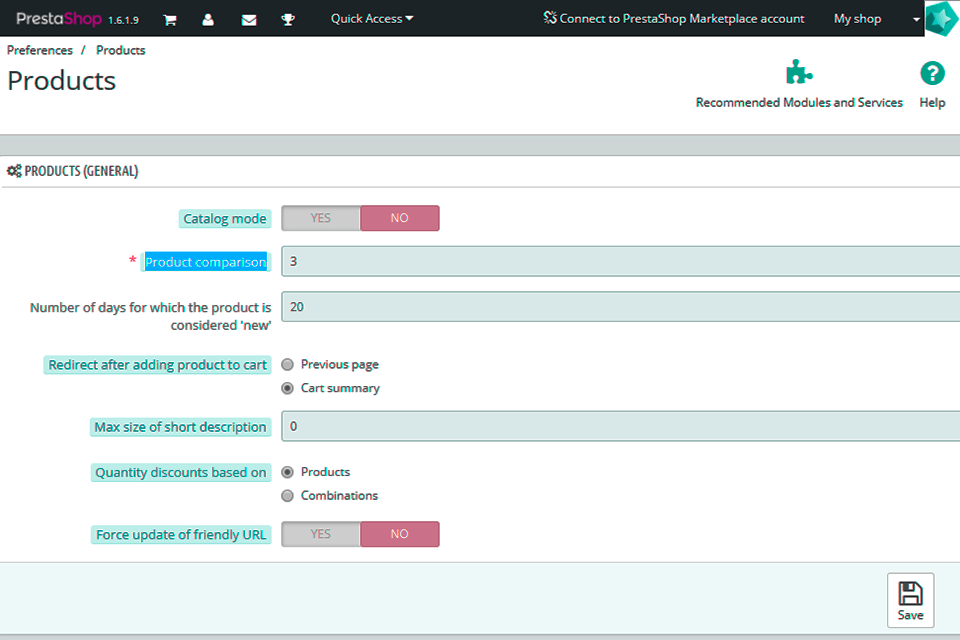
The best open source eCommerce platforms help business owners, developers and designers create online stores. With these solutions, you can manage inventory, create product listings and cart, place orders, add wish lists to your site, as well as connect payment systems. The list includes 11 platforms, including solutions for companies of different sizes, with different target audiences and workflows.
Using the best open source eCommerce platforms, you can add special features to your online store and create a custom store design, as well as get excellent support from the developer community on the forums. When selecting the best platforms, I focused on the ability to control the design and operation of the store, the availability of plugins, themes, SEO tools, and the choice of payment systems.
Verdict: WooCommerce is installed as an extension for WordPress. Thanks to the convenient admin panel, you can easily configure and manage your online store. It is possible to manage the inventory, coupons and product pages. You can also connect all major payment systems, including Amazon Pay and PayFast. This photography business app may be used for eCommerce from your smartphone as well.
You can get themes both in the official WooCommerce store and on third-party sites. Thanks to their well-thought-out and diverse design, you will only have to add your own content. Besides, you can extend the functionality of WooCommerce using the extension library. Currently selling on a different platform like Shopify? You can consider switching to WooCommerce to make full use of WooCommerce features and rocket your sales.

Verdict: Using osCommerce, you will create an online store with an individual design and well-thought-out functionality, because you will have access to 9000+ add-ons from developers from all over the world. As a rule, you can get them for free. Moreover, you can customize this opensource eCommerce platform yourself even if you don’t have much experience in development.
In case you have any problems with your online store, or you need to find a developer to create a site on osCommerce, you can ask a question in the community of 26,000 online store owners. On the downside, you will have to spend more time working on SEO for photographers business in comparison with other platforms.

Verdict: Drupal can be installed on any web server, similar to WordPress. This opensource eCommerce platform is optimized for SEO and offers an intuitive admin panel along with additional payment modules. It contains basic e-Commerce features, such as real-time sales alerts, mass data management, advanced reports, tracking site traffic and conversions.
Security is provided by controlling user access, encrypting the database, and sharing information through security reports. In addition, Drupal developers have considered preventing malicious data entry and mitigating denial-of-service (DoS) attacks.

Verdict: SureCart has revolutionized my experience with open-source eCommerce platforms on WordPress.
What stands out is the high customizability of SureCart. With this ability, I can either prefer creating my checkout forms from scratch or use their beautifully designed templates to ensure consistency in my brand's aesthetic.
At this level of customization, it assured me of guaranteeing an intuitive and lovely shopping experience for my customers. Another thing is that one-click upsell funnels together with order bumps — increase sales by a much greater degree, providing an easy way to increase the average order value.

Verdict: Spree Commerce is one of the best open source eCommerce platforms since it lets you configure, add or replace any functionality on your site. Therefore, you can create a store with a customized showcase that is convenient for interacting with PCs and mobile devices. In addition, the platform offers a lot of ready-made extensions, so you don’t have to use third-party programs.
The platform has a quick search, as well as a “smart” search – you can offer the customer a product even before they enter a phrase in the search field. It will take less than a second to sort and filter products. You need to install and place the system manually. Therefore, if you don’t have any development skills, you will have to hire specialists or take special courses.

Verdict: Zen Cart, a free opensource eCommerce platform, offers more than 1,800 add-ons. In case you have problems with the platform, you can contact the community with 150,000+ members. You can use many built-in payment gateways or integrate special modules, as well as use any hosting service and your own domain name.
It is possible to send emails in HTML format directly from the website to leads and clients. Moreover, you can communicate with them in their language, even if you want to sell products internationally. Zen Cart developers have also taken care of the security of the platform, so information about the site and customers will remain confidential.

Verdict: The experience of working with nopCommerce was so easy and I guess it’s for anyone who is concerned with flexibility and performance within eCommerce. It can accommodate everything from small shops up through international companies, with integrated tools for payment, marketing, and multi-store administration.
One thing that is really great is how rapidly a store can be set up and still be able to have enterprise capabilities on hand when they're needed. The admin interface is clean and logical, and multi-vendor support, handling of regional taxation, and mobile friendliness are all included. According to Reddit reviews, for even the most complicated business models, the system performs well under heavy loads and permits deep-level configuration.

Verdict: With Bagisto, you can create a marketplace or multi-store, as well as use SEO tools, the same as in SEO software, to promote products in search engines. Add meta descriptions to your products, title and keywords to help your store find more potential customers.
Using this open source commerce software, you will be able to manage the store by setting the access level. Assign an administrator or agents and set permission to perform tasks efficiently. You will have information about customers, orders and sales so that you can create an effective marketing campaign and track your progress.
Verdict: The Magento open source eCommerce platform lets you use different currencies and languages, manage multiple stores, as well as manage custom modules. Among the platform’s features are coupons, site maps, bulk import/export along with one-page checkout and order tracking. In addition, the user will have a vast array of plugins and add-ons. You can create an online store using the integrated website builder, personalize the design by adding elements of your corporate identity.
Thanks to the integrated Adobe Sensei technology, which is familiar to Adobe users, you can automatically analyze user behavior and offer them only what they might be interested in. You can also send customers notifications about price reductions and promotions for automated marketing.
Verdict: You can use OpenCart for free and find the answer to almost any question about the platform in a large community of developers. Take advantage of over 13,000 modules and themes to create an online store with an individual design. Among the payment systems, there are both popular and niche options.
Also, you can work with multiple stores simultaneously on this opensource eCommerce platform. You can configure products to appear in different stores at once, with different prices. Besides, each store can be further personalized.
Verdict: PrestaShop contains all kinds of functions for creating an online store and its development. You will have more than 4,500 templates with customization options. You can easily manage the store’s inventory and maintenance process, as well as communicate with users in a language they understand and accept payments in different currencies.75 languages and 60 secure payment modules are available.
To simplify logistics and order preparation, there are delivery modules. As a result, your customers will have a choice of delivery options and the option of tracking the parcel. PrestaShop doesn’t slow down websites and supports multiple vendors to launch an entire network of online stores.
